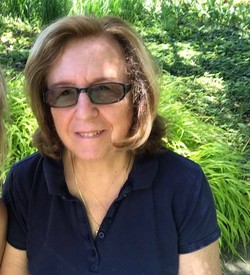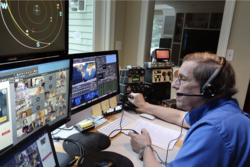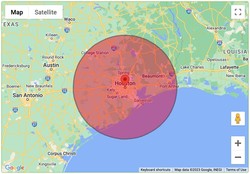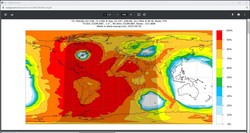 October 3, 2023 | ||||||
Welcome to the ARRL NTS Letter Marcia Forde, KW1U, Section Traffic Manager -- Eastern Massachusetts, Western Massachusetts, and Rhode Island
Welcome to the premiere issue of The NTS Letter! It has been a long time since ARRL sponsored a regular column or publication about the National Traffic System®. Now, thanks to the NTS 2.0 project and all the hard work of the NTS 2.0 teams, this is changing, and we are excited to bring you this monthly newsletter. For those of you who have been actively participating in the NTS, this is your newsletter. We also hope that this will help motivate others -- those who have been involved in the past, and particularly newer hams -- to learn about and get involved in developing and practicing skills in message relay and net operation. We plan to keep you updated on the happenings of the NTS 2.0 project, training opportunities, exercises, and other NTS news from around the country. For example, we have included news from Texas in this issue, thanks to North Texas Section Traffic Manager Aaron Hulett, K8AMH. We also plan to spotlight traffic handlers who have made an exceptional contribution to NTS, beginning with those members of the NTS 2.0 teams who have worked tirelessly every week to plan improvements to this important aspect of the hobby. All of this means we want and need to hear from you. If you would like to see this newsletter continue, send your comments and Section news to me, Marcia, KW1U, at ntsletter@arrl.org. I know, by the way, that we will get comments about the net directory, and I want to assure you we have a team that has put a lot of effort into this, having designed a set of requirements that will include means for regular updates and deletion from the database of nets that are no longer operating. You folks have been amazing, keeping traffic flowing 365 days a year. Let's see if we can build from there. As noted in the NTS Manual on the ARRL website (www.arrl.org/chapter-one-national-traffic-system), the National Traffic System (NTS) is "a structure that allows for rapid movement of traffic from origin to destination and training amateur operators to handle written traffic and participate in directed nets. These two objectives...are the underlying foundations of the NTS." It consists of the layering and sequencing of both voice and CW traffic nets, as well as a digital system that operates 24/7. This nationwide system operates 365 days a year, generally relaying routine message traffic for training purposes and for maintaining readiness if called upon in an emergency. If called upon, these operators stand ready to assist emergency communications personnel in relaying welfare and other agency messages such as the ICS-213. NTS 2.0 Project Fred Kemmerer, AB1OC, ARRL Director -- New England Division
I want to thank the many active traffic handlers across the country who answered the call to become involved in our project to improve support for the National Traffic System, better known as NTS 2.0. Launched in April 2022, the initiative started as a subcommittee of the Emergency Communications and Field Services Committee composed of a core team that sought to better support and evolve the National Traffic System. The initiative resulted in the formation of a working group tasked with developing a vision, goals, and work program for the project. In July 2022, the NTS 2.0 core team conducted a series of Division-level reviews and briefings with hams across the country to share their vision. The team received strong support and buy-in to the plan. The team successfully recruited 40+ active traffic handlers to work on implementing the vision and associated objectives. By year's end, five working groups had been formed. The groups currently meet via Zoom on a weekly basis. Their focuses include:
A Steering Committee composed of the leaders of the various working groups and ARRL's Director of Emergency Management Josh Johnston, KE5MHV, meets weekly to review progress.
We have created a website, nts2.arrl.org, as a source for information on these and other completed work items. It is ARRL's intent that this site will be the official source of all NTS procedures and guidelines, just as the FCC's online database is their official repository for all license information. It will take time to fully move all NTS information to this site, but even in the interim, any information found here is the latest official NTS policy and supersedes information on that topic in printed materials or at other locations on arrl.org. We will also be adding training materials to the NTS website in the near future. Our work on NTS 2.0 continues to expand as we take on work to address the issues that traffic handlers nationwide have told us are important. We are seeking additional volunteers who want to join one or more of our working groups to help us. If you are actively involved in traffic handling or emergency communications and want to help, please contact us at ntsletter@arrl.org. Finally, a special "thank you" to all of the folks who participate in and support the National Traffic System. Many of you give your time on a daily basis. We appreciate your service very, very much. ARRL West Gulf Division Exercise Prepares for Welfare Traffic Ahead of Hurricane Season Aaron Hulett, K8AMH, Section Traffic Manager, North Texas
The ARRL West Gulf Division executed its first-ever Division-wide National Traffic System (NTS) functional exercise on Saturday August 12, 2023, setting the stage for ongoing collaboration across the Division and development of new approaches to traffic relaying and delivery during incidents. The exercise, coordinated by the West Gulf Division Section Traffic Managers (STMs) Ed Hatch, AG5DV, from Oklahoma; Aaron Hulett, K8AMH, from North Texas, and Sheree Horton, WM5N, from South Texas, focused on assessing the Division's ability respond to a major event and relay welfare messages using a new, unique approach. For this exercise, test welfare traffic originating from the Houston area was sent to family members across the country to simulate how the NTS would assist during a sheltering scenario with all local telecommunications knocked out from a hurricane. An exercise player handbook, along with an Incident Briefing and Incident Action Plan (IAP), were prepared ahead of the exercise to provide participating traffic handlers clarity on exercise objectives and requirements. Traffic handlers used the Amateur Radio Disaster Welfare Message Form (FSD-244) to prepare and relay test welfare traffic to destinations across the country. Normally, the NTS focuses on relaying traffic to as close to its destination as possible before attempting delivery. However, the STMs developed and tested a new approach for relaying incident-related traffic during the exercise. The Oklahoma and North Texas Sections activated dedicated infrastructure access points that focused on making deliveries from these locations. Test welfare messages destined for the eastern United States were relayed to Oklahoma, and for the western United States to North Texas, where traffic handlers would then call, text, or email addresses to complete delivery from these locations. This way, for example, traffic destined for Massachusetts would only need to relay to Oklahoma, and traffic destined to Alaska would only need to relay to North Texas, shortening transit times and distances, improving accuracy, fast-tracking delivery, and better centralizing recordkeeping for post-incident turn-in and review. This new approach follows what the participating Division STMs believe is a more advantageous response model when needing to stand up and coordinate traffic handling resources at a moment's notice. Rather than needing to activate the entire NTS across the country, traffic handlers in and around the affected area can rapidly mobilize, initiate incident-focused traffic nets, and quickly begin relaying information into and out of the affected area. The STMs utilized the Homeland Security Exercise and Evaluation Program (HSEEP), which provides a set of guiding principles for exercise and evaluation programs, as well as a common approach to exercise program management, design development, conduct, evaluation, and improvement planning. Data is still being analyzed as part of the post-exercise review, and an After-Action Report / Improvement Plan will be published on the NTS website of the West Gulf Division once the evaluation is completed. The South Texas, North Texas, and Oklahoma Section Traffic Managers would like to express their gratitude to those that originated test welfare traffic, those who relayed and delivered traffic, and net managers who all helped execute and make this first Division-wide exercise a positive learning experience to help continue improving and growing the NTS. Spotlight: Frank Hobbs, KN4QJ Frank Hobbs, KN4QJ, serves as Section Traffic Manager for the Georgia ARRL Section.
He's a retired Chief Instructor of Heavy Rail Maintenance for the Metropolitan Atlanta Rapid Transit Authority (MARTA). Frank has enjoyed amateur radio since 1988 and presently serves as net control operator for several local nets in Georgia. He first became involved in traffic handling around 2003, and has been "hooked" ever since. Frank is involved in the NTS 2.0 Access & Delivery Working Group. Frank commented, "The NTS needs more exposure and training to the amateur radio community as well as other entities so when needed during emergencies we can provide traffic handling for served agencies at an expert level." NTS Shorts Recent NTS Coverage in QST and On The Air While it had been quite some time since any articles on NTS had appeared in QST magazine, we hope you noted the article in the July 2023 issue, on pages 64-65, titled "The National Traffic System -- A History and ARRL's Path Forward." Also noted in On the Air magazine, the July/August 2023 issue featured "Talking About Traffic" and "ARRL Section Traffic Volunteering." While you're at it, check out the July 2023 On the Air podcast episode, "When Messages Matter: Passing Traffic" at blubrry.com/arrlontheair. As noted in the article above, there is now a website, nts2.arrl.org, which is intended to be the official source of all NTS procedures and guidelines. All completed projects will be posted on this site under the "Standards and Procedures" tab. The following work has been completed and published to date:
Don Rolph, AB1PH, who is involved with the NTS 2.0 Digital Working Group, and others have begun a unique study to explore how propagation issues affect point-to-point communication across the country.
NTS Resources The National Traffic System® (NTS) is a network of amateur radio operators who move information during disasters and other emergencies. General messages offering well wishes also move through the NTS to help test the system and to help amateur radio operators build traffic handling skills. While the NTS is primarily set up to serve the United States and Canada, it is possible to move traffic internationally through the NTS through various local, regional, area, and international network connections. Sign up to receive The NTS Letter The NTS Letter is published monthly and is free of charge to ARRL members. Subscribe: arrl.org/opt-in-out Editor: Marcia Forde, KW1U, Section Traffic Manager -- Eastern Massachusetts, Western Massachusetts, and Rhode Island ARRL Director of Emergency Management: Josh Johnston, KE5MHV ARRL Emergency Management Planner: Jeremy Dunkley, KC1SIV Support NTS: Join ARRL NTS is a program of ARRL The National Association for Amateur Radio®. No other organization works harder than ARRL to promote and protect amateur radio! ARRL members enjoy many benefits and services including digital magazines, e-newsletters, online learning (learn.arrl.org), and technical support. Membership also supports programs for radio clubs, on-air contests, Logbook of The World®, ARRL Field Day, and the all-volunteer ARRL Field Organization.
| ||||||










